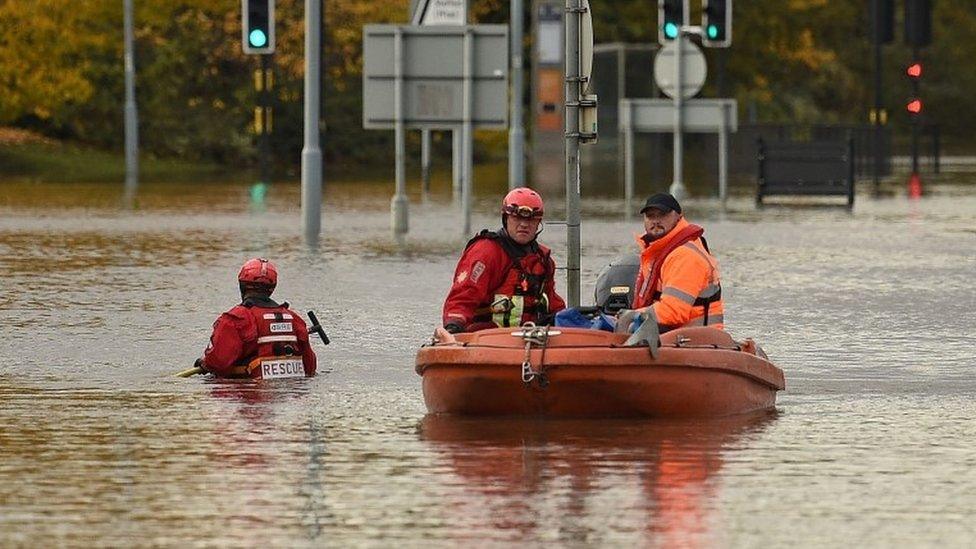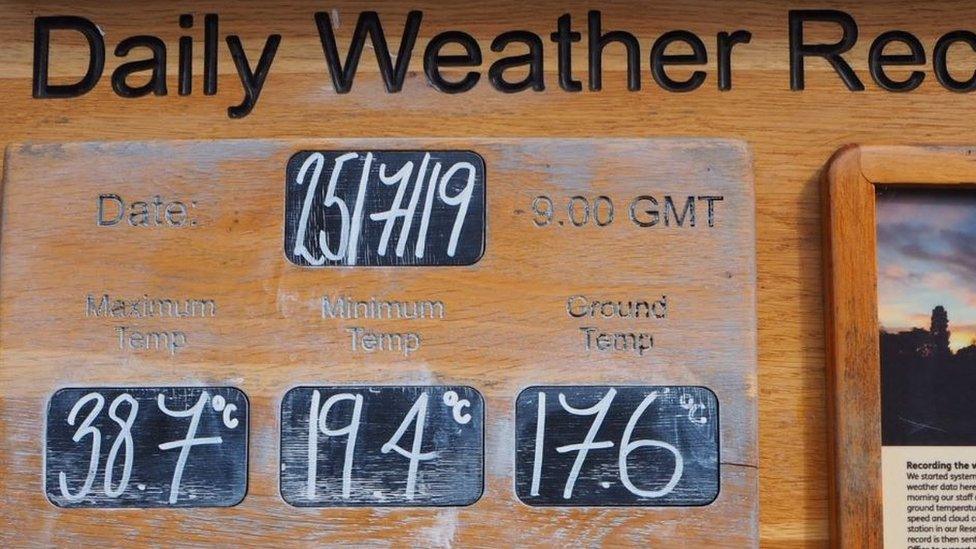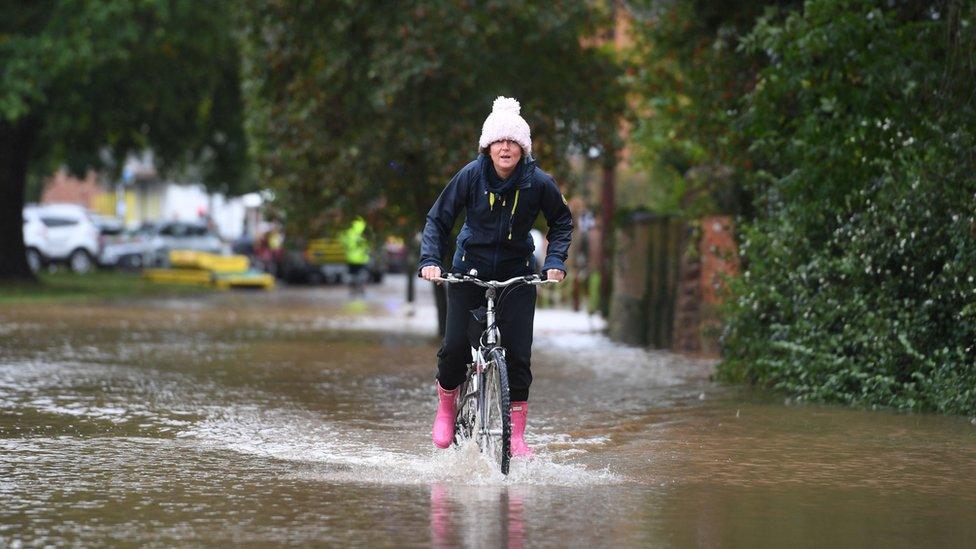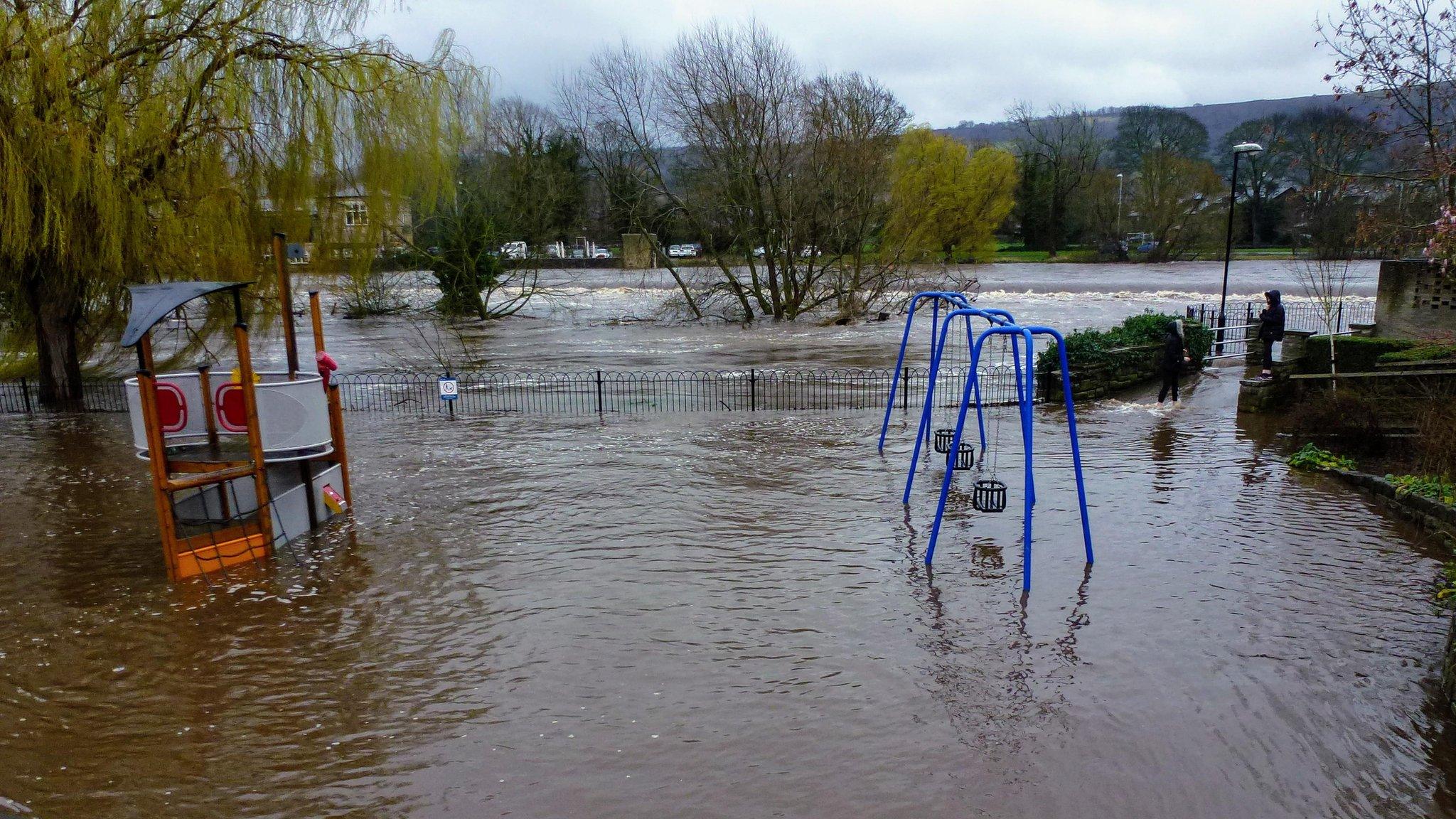Climate change having 'increasing impact' on the UK's weather, Met Office says
- Published
- comments

Rescuers working in Rotherham after flooding across England in November 2019
Climate change is having "an increasing impact" on the UK’s weather, the Met Office says.
The Met Office - the UK's national weather service - forecasts the weather, but also looks at how changes in climate might impact all or part of the country.
Some of the effects that could be seen in 2019 included trees coming into leaf earlier, less frost and snow, and more extreme heat.
The State of the UK Climate report shows that UK temperatures in 2019 were 1.1° C above the 1961-1990 averages.
Mike Kendon, lead author from the Met Office, said: “This year was warmer than any other year in the UK between 1884 and 1990.”
Severe swings from rain to heat

A record-breaking temperature of 38.7C (101.7F) was recorded at Cambridge University Botanic Garden in July 2019
Professor Ilan Kelman, from University College London, said heat would become an increasing problem.
He said: "These UK records show that if we do nothing about stopping climate change we are on track for summer heat and humidity which would be highly dangerous for us to be outdoors - and to be indoors without continual cooling.”
38.7° C - a new UK maximum record on 25 July, in Cambridge
21.2° C - a new winter maximum record on 26 February, in Kew Gardens, London (the first time 20C has been reached in the UK in winter)
18.7° C - a new December maximum record on 28 December, in Achfary, Sutherland
13.9° C - a new February minimum record on 23 February, in Achnagart, Highland
Source: Met Office
Dr Mark McCarthy, from the Met Office, added it was a particularly wet year across parts of central and northern England.
He said Lincolnshire, Nottinghamshire, Derbyshire, Leicestershire and Cheshire received between a quarter to one third more rainfall than normal. For northern England this was the ninth wettest year in a series from 1862.
He said: "It’s worth noting that since 2009 the UK has now had its wettest February, April, June, November and December on record – five out of 12 months."
WATCH: Tobi tells us how he has been affected by the Doncaster floods (November 2019)
Hannah Cloke, professor of hydrology at the University of Reading, said: "As well as extreme hot temperatures, the stand-out weather events in 2019 were the many different types of floods, causing millions of pounds worth of damage and causing misery to many people."
Summer flash floods caused by extreme downpours, many autumn and winter river floods caused by heavy rain and storms, and continued sea-level rises raising the risk of coastal floods were just some of the examples she listed as evidence.
- Published2 October 2019

- Published17 March 2019

- Published27 November 2018

